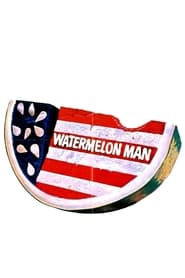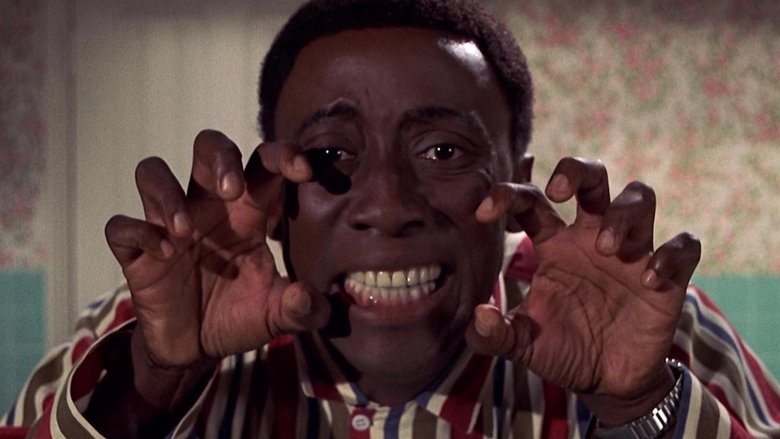“Watermelon Man” (1970) is a satirical film directed by Melvin Van Peebles. It tells the story of a white man named Jeff Gerber who wakes up one morning to find himself transformed into a black man. With biting humor and social commentary, this thought-provoking movie explores racial prejudice, white privilege, and identity crisis in a swift and impactful manner. Gerber’s transformation serves as a powerful metaphor for the challenges faced by African Americans in an unjust society. Through quick-witted dialogue and incisive visuals, “Watermelon Man” forces viewers to confront uncomfortable truths about racism while highlighting the absurdity of racial stereotypes.

CLICK HERE⭳⭳⭳✅_Watch Watermelon Man 1970 English Subtitles_
Review
In the bustling streets of 1970s America, a groundbreaking film emerged that challenged societal norms and shattered conventions. “Watermelon Man,” directed by Melvin Van Peebles, dared to confront the deep-rooted prejudices and racial tensions prevalent in our nation.
Set in the heart of urban America, this movie tells the story of Jeff Gerber, a white insurance salesman who, overnight, magically transforms into a black man. Played by talented actor Godfrey Cambridge, Jeff undergoes an unimaginable metamorphosis when he wakes up one morning to find his skin color changed forever. This extraordinary transformation sets the stage for a remarkable exploration of race and identity.
In this bold social commentary, Van Peebles uses dark humor and biting satire to expose the everyday racism experienced by Black individuals in America. He challenges viewers to confront their own biases and assumptions through this unexpected twist of fate that befalls Jeff Gerber.
The film’s plot navigates through Jeff’s struggle to reconcile with his newfound racial identity. As he comes face-to-face with discrimination and oppression that had previously been invisible to him as a white man, Jeff grapples with understanding his place in society.
While “Watermelon Man” received mixed reviews upon its release, it has since become a cult classic revered for its incisive portrayal of race relations in America. Maya Angelou herself praised the film for its audacity and thought-provoking message.
The stellar cast includes iconic actors such as Estelle Parsons as Althea Gerber, Jeff’s wife; Kay Kimberley as Janice Gerber, their daughter; and Mantan Moreland as Hector Jenkins, a wise neighbor who becomes an ally for Jeff on his journey towards self-discovery.
One memorable scene stands out when Jeff confronts his wife about her internalized racism. Althea recoils at seeing her husband transformed into a Black man. Her visceral reaction serves to illuminate how deeply ingrained racism can be, even within our closest relationships.
Van Peebles masterfully weaves in historical facts into his storytelling, creating a narrative that resonates deeply with viewers. Throughout the film, he includes flashbacks and references to pivotal moments in Black history, such as the civil rights movement and iconic figures like Martin Luther King Jr. and Malcolm X.
The film’s score, composed by Melvin Van Peebles himself, adds another layer of brilliance to this cinematic masterpiece. From funky beats to soulful melodies, the music captures the shifting emotions of the characters and serves as an accompaniment to their personal journeys.
Despite its initial limited release and mixed critical reception, “Watermelon Man” has gained recognition for its groundbreaking approach to exploring racial identity on screen. Its contribution to cinema cannot be understated as it paved the way for future films that challenged societal norms and sparked important conversations about race.
The filming of “Watermelon Man” posed unique challenges due to its controversial subject matter. Van Peebles faced resistance from studios hesitant to finance a film that tackled such sensitive topics head-on. However, his determination prevailed and led to a production that remains relevant decades later.
Critics lauded Van Peebles’ innovative cinematography in “Watermelon Man.” By deliberately employing a mix of gritty realism and surrealistic visuals, he creates an otherworldly atmosphere that heightens the tension between Jeff’s internal struggle and external perceptions.
Opinions on this trailblazing film have been diverse since its release. While some praised its unapologetic honesty and thought-provoking nature, others criticized it for being heavy-handed in its social commentary. Nonetheless, “Watermelon Man” undeniably left an indelible mark on American cinema.
The movie received several prestigious awards at various film festivals around the world. Its recognition at these events solidified its reputation as a groundbreaking work of art that pushed boundaries while forcing audiences to confront uncomfortable truths.
The dialogue in “Watermelon Man” is sharp, poignant, and at times confrontational. Van Peebles’ script fearlessly tackles issues of race, showcasing conversations laden with tension, reflection, and even humor. Through these dialogues, the film challenges viewers to reconsider their own preconceived notions.
Behind the scenes, a dedicated crew worked tirelessly to bring Van Peebles’ vision to life. From makeup artists who perfected Jeff Gerber’s transformation into a Black man to set designers who recreated the authentic ambiance of 1970s America, each member of the crew played a vital role in crafting this thought-provoking film.
Some critics argue that “Watermelon Man” should have delved further into the complexities of racial identity and its impact on personal relationships. They felt that the film fell short in fully exploring the emotional turmoil experienced by both Jeff and those around him.
The production and editing of “Watermelon Man” were testaments to Van Peebles’ directorial vision. Despite budget constraints and studio interference, he managed to create a visually stunning film that immerses audiences into Jeff’s tumultuous journey.
In conclusion, “Watermelon Man,” inspired by Maya Angelou’s artistic spirit and courage for truth-telling, forces us as viewers to confront our own biases and assumptions. This transformative tale combines stellar performances with bold storytelling techniques, leaving an indelible imprint on American cinema. It serves as a timeless reminder that our perceptions are not immutable and invites us to question societal constructs that perpetuate inequality.
Technical Data

- Release : 1970-05-27
- Runtime : 100
- Genre : Comedy, Drama
- Cast : Godfrey Cambridge as Jeff Gerber, Estelle Parsons as Althea Gerber, Howard Caine as Mr. Townsend, D’Urville Martin as Bus Driver, Mantan Moreland as Counterman
- Crew : Malcolm C. Bert as Art Direction, Carl Kress as Editor, W. Wallace Kelley as Director of Photography, Melvin Van Peebles as Director, Melvin Van Peebles as Original Music Composer
- Revenue : 0
- Budget : 0
- Company : Johanna, Columbia Pictures
- Popularity : 7.059
- Summary : Jeff Gerber, a racist insurance agent and fitness freak, lives in a typical suburban neighborhood. But Jeff’s bigoted world of taunting and harassing black people on and off the job is turned upside down when his skin inexplicably turns dark overnight. As Jeff tries to come to terms with this unexplained phenomenon that has befallen him, he soon becomes the victim himself, when all of his friends and neighbors suddenly shun and harass him.
- Tagline : His white bread world just turned upside brown!
